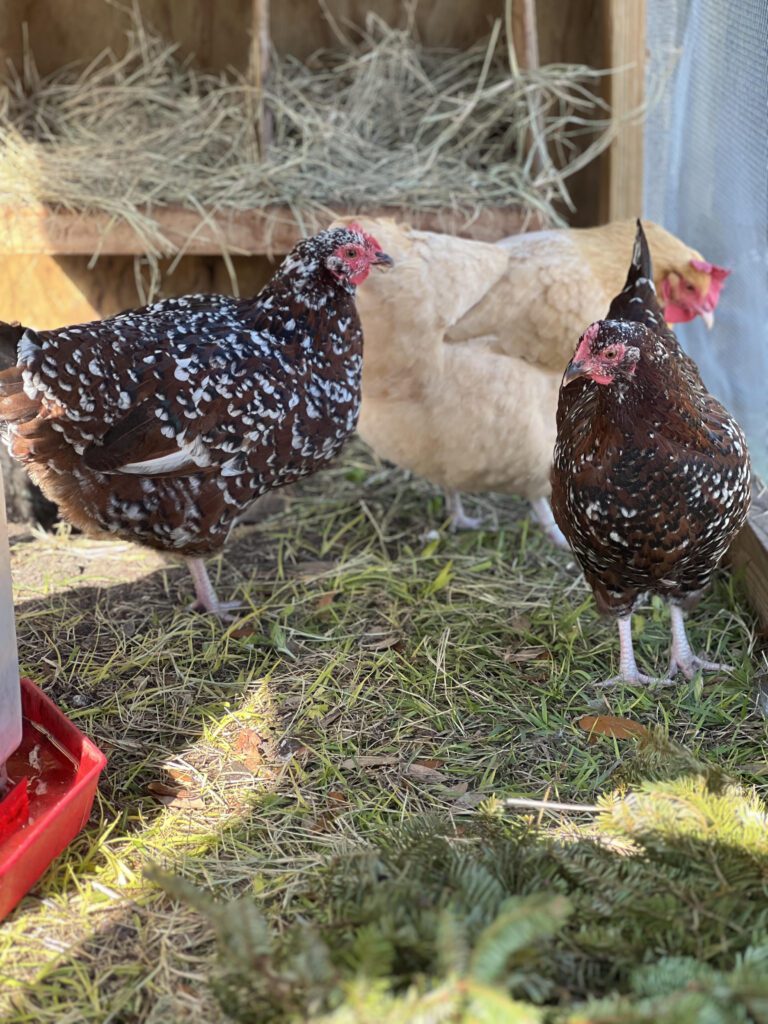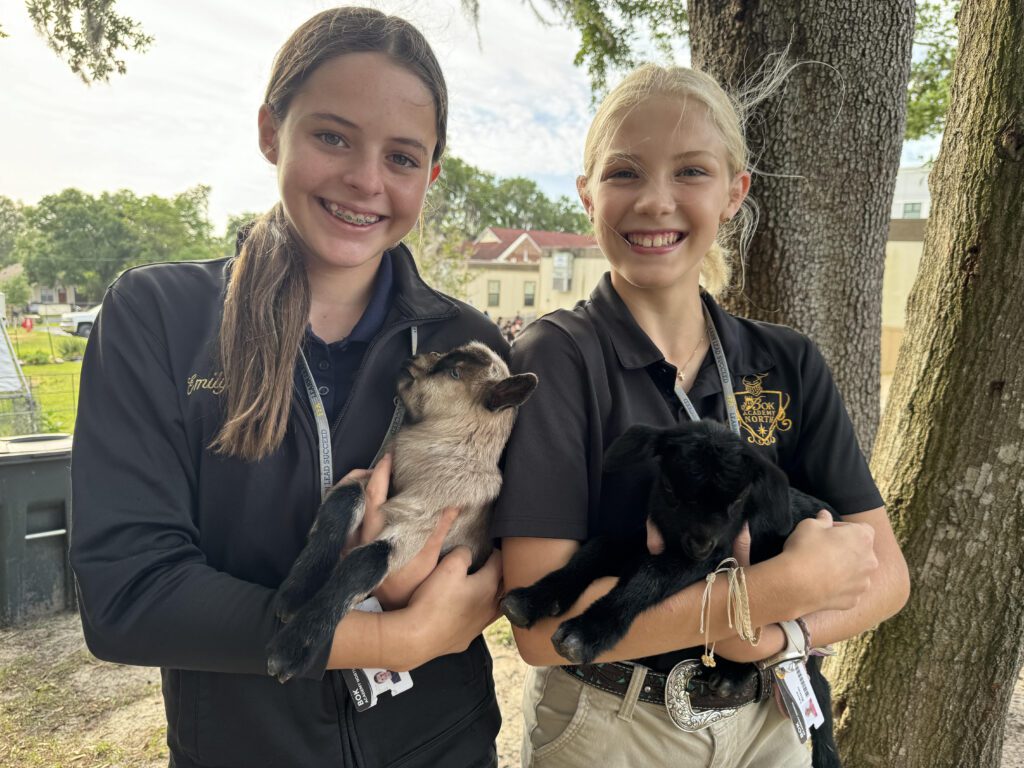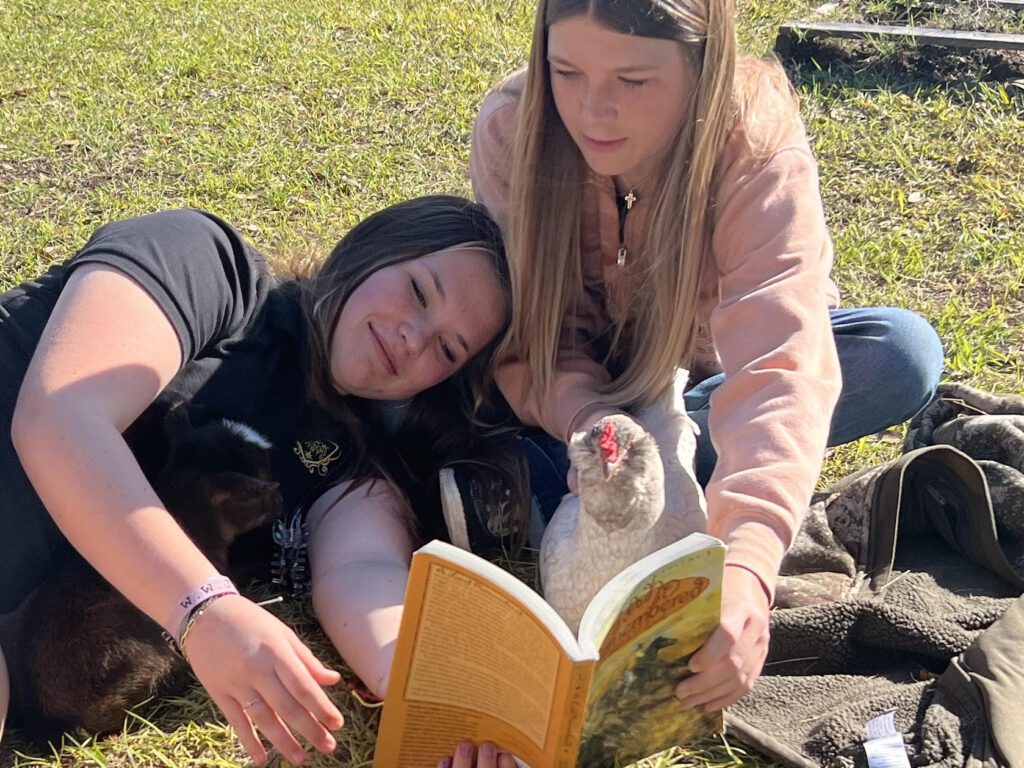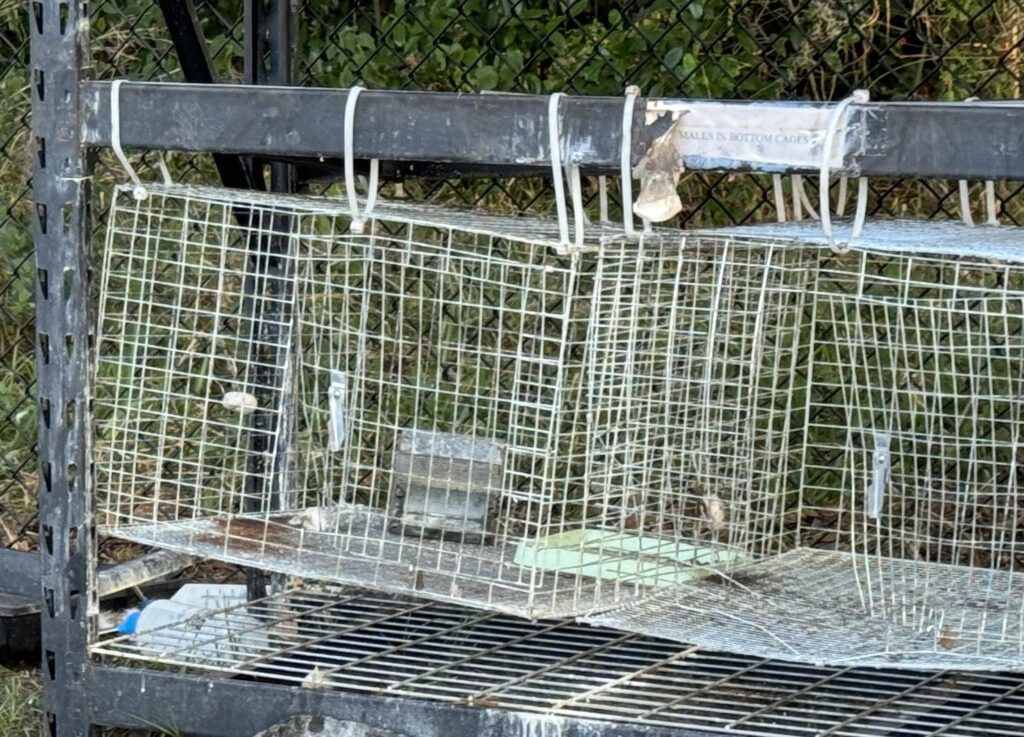
Bok Academy North’s FFA Program Rebuilding After Devastating Loss
by REBEKAH PIERCE
For students in the Bok Academy North Middle School FFA program, life has always been about growth and change.
Despite being a fledgling program chartered just four years ago, it’s been wildly successful, with students participating in everything from citrus identification to livestock evaluation, aquaculture to agribusiness.
On the outskirts of campus at Bok Academy North, the program (the “Land Lab’”) houses numerous hydroponic growing systems, an aquaponics system, multiple raised and planted beds, chicken enclosures, rabbit enclosures, duck housing, a calf pen, goat enclosures, and much more.
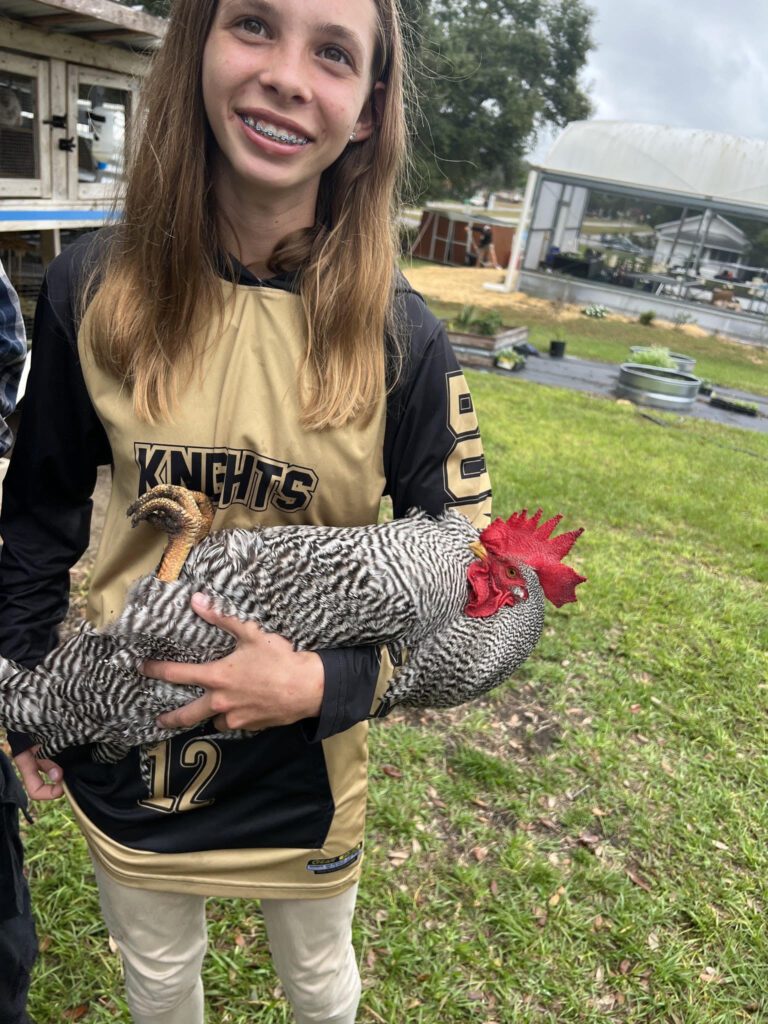
Each day, students go outside to care for their animals and plants, enjoying the fruits of their labor in the form of fresh herbs and vegetables, and animal snuggles.
The students here know too well that death is a natural part of life, especially when it comes to raising livestock. Nevertheless, they’ve naturally formed strong attachments to the animals that they’ve nurtured here, some of them since birth.
But none of them expected tragedy to strike.
An Unexpected Attack
On the morning of May 9, FFA advisor Jennifer Williams received an urgent phone call from her principal. It was only 6:45 AM, so she assumed the news was exciting — perhaps a compliment on how great the sunflowers were looking or to let her know a new baby had been born. Instead, the principal let her know she needed to get to the school – and fast.
When Williams arrived at the school less than half an hour later, she saw firsthand the carnage that had unfolded.
Dead chickens and rabbits lie everywhere amid destroyed cages. None of the animals had actually been consumed, just mercilessly slaughtered. It was an absolute massacre. Of the many rabbits raised in the program, only two survived by hiding inside a wooden enclosure.
“My heart sank,” Williams said, worrying about the students who would be arriving on campus in the next hour.
The students spend hours every day caring for the animals and have a strong emotional attachment to them. “The reason why these students [get so excited is] because some of them don’t always get the opportunity to take care of and be [close to] animals.”
For many students, the attack wasn’t just about the deaths of innocent animals. It was also an incident that robbed them of something they truly loved and found meaning in — the chance to care for animals.
The exact details of the attack are still murky, but what Williams and her students do know is that a group of dogs was responsible for the massacre, which ultimately killed 29 show animals.
The violence was limited to the rabbits and the chickens. A custodian chased the dogs away before they were able to breach the goat enclosure, which housed newborn kids. The calves, piglets, and other animals were also spared.
Dealing With the Aftermath
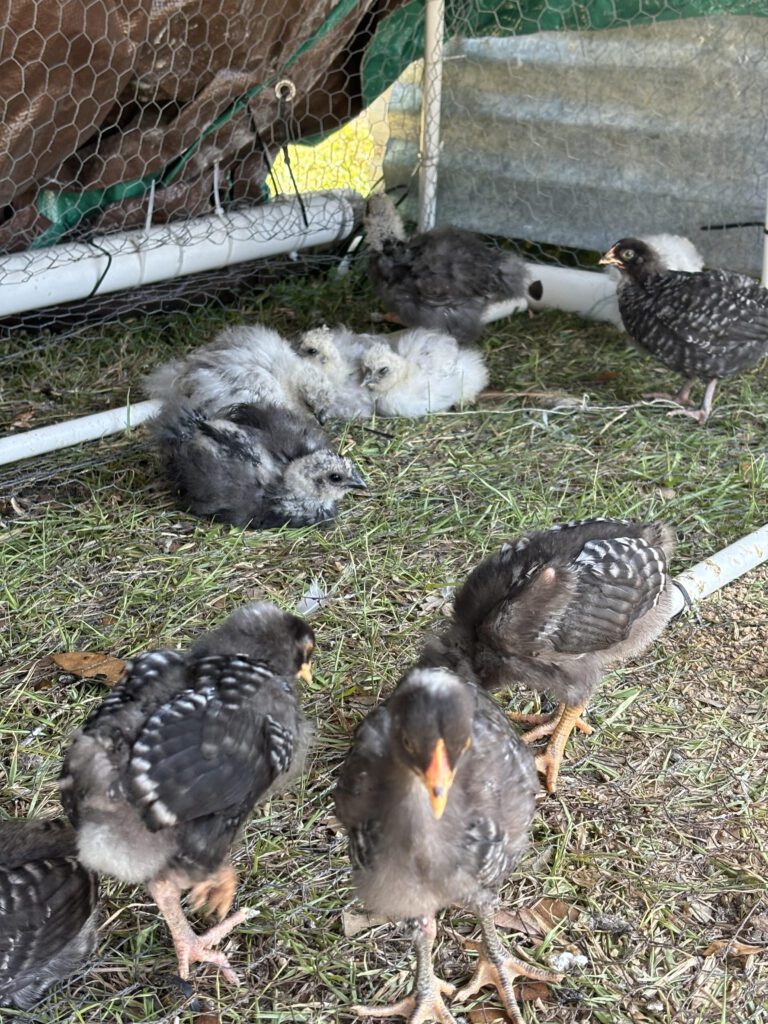
Unfortunately, Williams was informed that the owners of the dogs, who were issued citations for allowing their dogs to illegally roam, would not be held financially responsible for the devastation. So while the FFA will rebuild and have animals on-site once again, it will take time.
“Our community has been very generous by offering replacement animals, services, and monetary donations to help rebuild,” says Williams. She hasn’t been able to take in the replacement animals to date because the school needs to replace and repair the housing areas first. Still, the students have taken some comfort in knowing that they will be able to have animals on site again in the near future.
The school community has rallied since the attacks, but it hasn’t been easy. “The students were devastated after this tragedy, especially the students who showed the animals at the Polk County Youth Fair. Many students got emotionally attached.”
The students remarked that, for about two weeks after the incident, no one wanted to go outside into the Land Lab because they felt sad about how empty it seemed.
Picking Up the Pieces
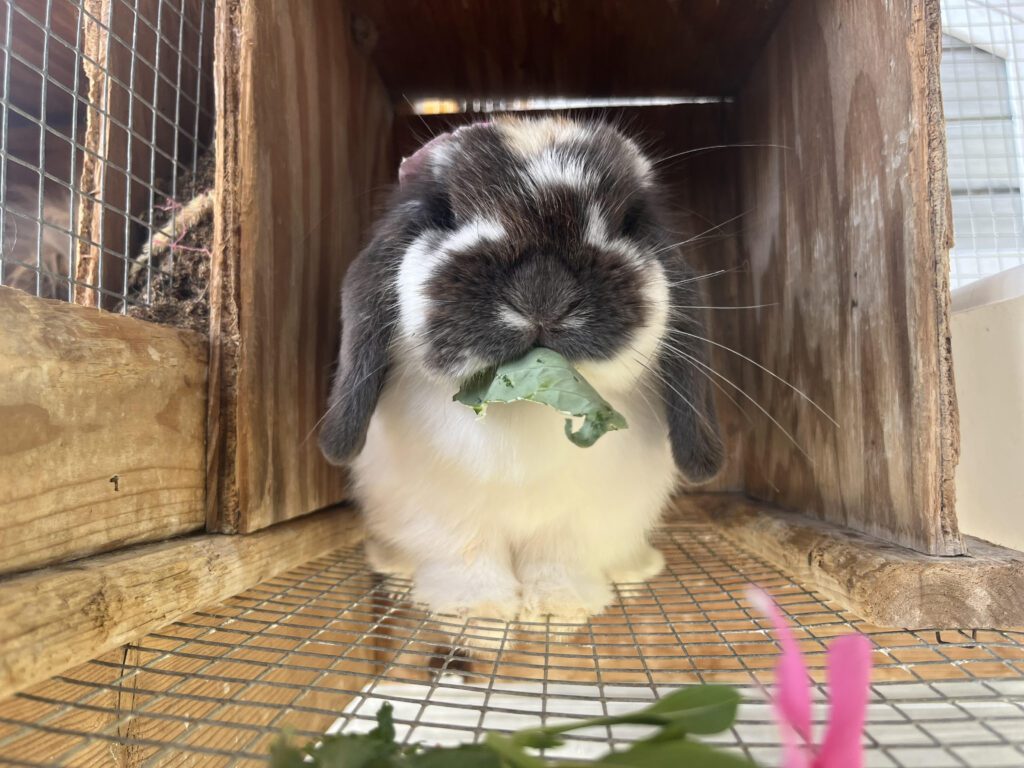
Aside from the emotional devastation of the loss of the animals from this event, many students also reported feeling robbed of the opportunity to show. The fair has age limits for animals, so they must be a certain age before they can be shown. Even if Williams gets new chickens now, for example, they probably won’t be able to be exhibited because they won’t be old enough.
Nevertheless, Williams has worked hard to rally her students, and they’ve come together to design a new layout with different housing options, to disassemble broken cages, and to plan work sessions to build new chicken coops and rabbit hutches.
It’s going to require a lot of work. Most of the cages are currently unusable because they were bent and broken by the dogs. To say they’re making lemonade out of lemons is an understatement.
The biggest challenge, of course, is the cost. The local nonprofit Ridge Youth in Agriculture is hosting a GoFundMe event (https://www.gofundme.com/f/rebuild-bok-north-ffas-land-lab) that had raised about $3,000 as of late May.
This money is only a start, but it will go a long way in helping the program rebuild. One student remarked, “We have to have housing areas that are safe for animals before we can bring any animals on campus…we have to be extra careful and ensure this does not happen again.”
Wondering how you can contribute? Outside of pure monetary donations, “Fencing, housing, and physical labor are the main ways the community can be of assistance,” Williams says.
To help the school rebuild, reach out to Jennifer Willimas at (863) 412-6470 or jennifer.williams@lwcharterschools.com.
The future of agriculture is in FFA, and the students at Bok Academy North have not only shown their passion and dedication to agriculture in the rebuilding efforts. They’ve also demonstrated a remarkable resilience and a can-do spirit that should serve as an inspiration to us all.
Says Williams: “I hope this teaches [the students] that even when circumstances are awful, you must work and put the pieces back together.”
